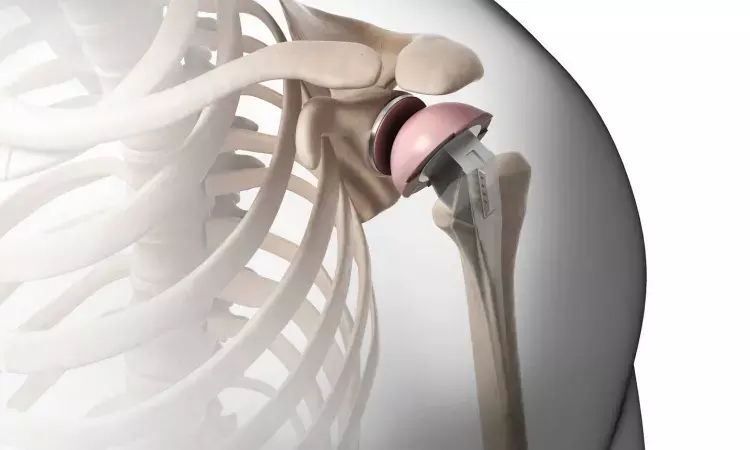- Home
- Medical news & Guidelines
- Anesthesiology
- Cardiology and CTVS
- Critical Care
- Dentistry
- Dermatology
- Diabetes and Endocrinology
- ENT
- Gastroenterology
- Medicine
- Nephrology
- Neurology
- Obstretics-Gynaecology
- Oncology
- Ophthalmology
- Orthopaedics
- Pediatrics-Neonatology
- Psychiatry
- Pulmonology
- Radiology
- Surgery
- Urology
- Laboratory Medicine
- Diet
- Nursing
- Paramedical
- Physiotherapy
- Health news
- Fact Check
- Bone Health Fact Check
- Brain Health Fact Check
- Cancer Related Fact Check
- Child Care Fact Check
- Dental and oral health fact check
- Diabetes and metabolic health fact check
- Diet and Nutrition Fact Check
- Eye and ENT Care Fact Check
- Fitness fact check
- Gut health fact check
- Heart health fact check
- Kidney health fact check
- Medical education fact check
- Men's health fact check
- Respiratory fact check
- Skin and hair care fact check
- Vaccine and Immunization fact check
- Women's health fact check
- AYUSH
- State News
- Andaman and Nicobar Islands
- Andhra Pradesh
- Arunachal Pradesh
- Assam
- Bihar
- Chandigarh
- Chattisgarh
- Dadra and Nagar Haveli
- Daman and Diu
- Delhi
- Goa
- Gujarat
- Haryana
- Himachal Pradesh
- Jammu & Kashmir
- Jharkhand
- Karnataka
- Kerala
- Ladakh
- Lakshadweep
- Madhya Pradesh
- Maharashtra
- Manipur
- Meghalaya
- Mizoram
- Nagaland
- Odisha
- Puducherry
- Punjab
- Rajasthan
- Sikkim
- Tamil Nadu
- Telangana
- Tripura
- Uttar Pradesh
- Uttrakhand
- West Bengal
- Medical Education
- Industry
Is 'frozen shoulder' a genetic condition or linked to specific genes?

Frozen shoulder, or adhesive capsulitis, is a common cause of shoulder pain and immobility. Whether there's is a genetic basis for the disease is unknown.
Researchers at Hospital for Specialty Surgery, New York have found in a new study that specific genes may be associated with an increased risk of Frozen shoulder, or adhesive capsulitis. Further the risk genes are associated with nearly a sixfold increase in the odds of developing frozen shoulder-a stronger association for most known clinical risk factors. The researchers believe that their findings may lend new insights into the causes, prevention, and treatment of adhesive capsulitis.
The study has been published in the Journal of Bone & Joint Surgery.
Genome-wide association study finds 'significant loci' affecting frozen shoulder risk
Patients with adhesive capsulitis develop painful and progressive loss of shoulder motion with associated pain. Frozen shoulder is one of the most common shoulder conditions, occurring in up to 10% of people at some time in their lives. Although the exact cause is unclear, frozen shoulder sometimes occurs after an injury, surgery, or other condition that reduces shoulder mobility. Loss of motion results from fibrosis (scarring or thickening) of the capsule around the shoulder joint.
Certain clinical factors are associated with an increased risk of frozen shoulder, including diabetes, thyroid disease, and smoking. Recent studies have suggested that risk is also higher in people with affected relatives-suggesting a possible genetic predisposition. Dr. Langhans and colleagues performed a genome-wide association study to identify specific genes that might be related to the risk of frozen shoulder.
Data studied from large British database
The study used data from a large British database, the UK Biobank, which includes genetic and health data on approximately 500,000 patients. The analysis focused on 2,142 patients with adhesive capsulitis compared to those without this diagnosis. Possible genetic associations were adjusted for other factors, including sex, diabetes, thyroid disease, history of shoulder dislocation, and smoking.
The study identified three significant loci for frozen shoulder. The strongest association was found for gene variants located at a site called WNT7B. This finding was consistent with previous studies that reported a possible link between WNT7B and frozen shoulder, along with several other orthopaedic-related conditions. Weaker associations were also found for two previously unreported genetic loci located near genes for POU1F1 and MAU2.
All three associations remained significant after adjustment for other factors. Together, the three variants carried nearly a sixfold increase in the odds of developing frozen shoulder. That was greater than the risk associated with diabetes (about four-fold) or thyroid disease (less than two-fold), and second only to smoking (about 11-fold).
New insights could lead to a new development
The findings may lend new insights into the development of adhesive capsulitis. In particular, genes located at WNT7B have been shown to be expressed in bone-forming cells (osteoblasts) and to be involved in regulating fibrosis, along with a wide range of other functions. The two newly reported loci, POU1F1 and MAU2, are involved with cell division, which might lend clues into the cellular mechanism by which frozen shoulder develops.
The researchers note some key limitations of their analysis, including the need for further studies of genetic associations in groups other than the white, British population that predominates in the UK Biobank.
Meanwhile, the new study identifies several gene loci with the ability to predict a clinically relevant risk of frozen shoulder. Dr. Langhans and colleagues conclude: "Refining the genetic risk metric and including it in a larger clinical model could allow patients at risk for future adhesive capsulitis to be identified, leading to efforts at prevention, early diagnosis, and ultimately improved outcomes."
Reference:
Scott Kulm, PhD Mark T. Langhans, MD, PhD Tony S. Shen, MD David A. Kolin, BS Olivier Elemento, PhD Scott A. Rodeo, MD Journal The Journal of Bone and Joint Surgery, DOI 10.2106/JBJS.21.01407
Dr Kamal Kant Kohli-MBBS, DTCD- a chest specialist with more than 30 years of practice and a flair for writing clinical articles, Dr Kamal Kant Kohli joined Medical Dialogues as a Chief Editor of Medical News. Besides writing articles, as an editor, he proofreads and verifies all the medical content published on Medical Dialogues including those coming from journals, studies,medical conferences,guidelines etc. Email: drkohli@medicaldialogues.in. Contact no. 011-43720751


